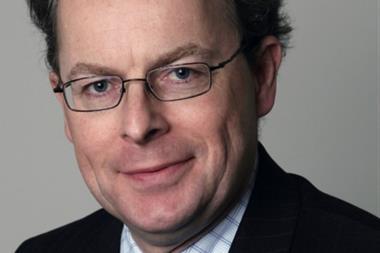Global Investment Performance Standards (GIPS) have reached the point where they can finally “take off”, announced Dugald Eadie, managing director of Henderson Investors and chairman of the EFFAS GIPS commission, at a conference on clarifying and implementing the new standards in London last month.
“What we need to see now is the situation where a GIPS-compliant fund manager in Portugal can manage assets in any country where they have been adopted. Attaching this mark of credibility to the manager and their investments is vitally important.”
Eadie commented that the packed conference indicated GIPS’ importance on the European asset management agenda and called for its recognition as a major achievement. “This could be the first industry in the world to have a global standard, and I believe that investment houses are ready to embrace the initiative.”
He noted that potential glitches are being ironed out, pointing to the recent acceptance by the UK National Association of Pension Funds’ (NAPF) of UK compliance with GIPS.
Eadie called upon the NAPF to hold the torch ahead for GIPS: “We need the NAPF to set an example and show that US managers, for example, which have attained GIPS, can be recommended to UK pension fund trustees. Our objective was always to integrate US, European and UK standards to a proficiency platform, upon which further requests can be made if so required between parties.
“There are issues still to address, but in essence we are on the route to achieving a possible higher GIPS standard in 2010,” he stated.
Eadie also announced, though, that he was seeking to take a back seat role on the GIPS initiative, having been involved in its inception and bringing it this far.
He ended by proposing the implementation of an investment performance council with a globally orientated composition of different regulatory and professional bodies, alongside a subsidiary committee set up to address issues of GIPS verification, parity, and implications for the retail investment market in the future.
Robert Parker, chief executive at Credit Suisse Asset Management (CSAM), which became AIMR compliant at its London base in September 1998, adding a further 12 compliant offices in November 1998, explained to the conference how the pursuit of performance standards became a catalyst for defining CSAM’s global business.
“Seeking AIMR compliance led us to look closely at whether we were applying best practice across all our functions, and we believe asset managers need to have this uniformity and clarity to reassure clients that an industry set of rules has been adhered to in their performance returns. Firms that do not move quickly on this will be under pressure and may lose business when the consultants start to demand GIPS as standard for shortlists with clients who know they are available from other managers.”
Paul Audu, investment manager at the London Borough of Hackney pension fund, commented as such: “I believe that in future clients will insist on full GIPS compliance because they know they will benefit form being able to make like-for-like comparisons and thus informed judgement based on independently validated results. It is the best antidote to suspicion and accusations of improper conduct amongst asset managers. Clients want to see the whole picture – completeness, user-friendliness, openness and consistency.The best way to ensure this is to embrace GIPS.”
The day’s most fervent debate, though, came on the issue of compliance verification.
Deborah Reidy, senior consultant at William M Mercer, Ireland, emphasised the need to avoid issues of level two single composite verification, which have posed problems for AIMR in the US.
In reply, Eadie pointed to the allowance of performance audits on top of the GIPS standard, but stressed that houses could not merely have a single GIPS-compliant composite.
Reidy added that consultant input would be important for asset managers needing to readjust time-weighted averages for reporting, and suggested that performance specialists like CAPS and WM would remain valid as independent verifiers to the industry.
She also commented on the need for overall industry regulators such as IMRO and the IPC to oversee GIPS, commenting that US managers that had breached AIMR compliance had been heavily fined and made an example of before the investment community.
Louise Spencer, senior manager in the investment management group at PricewaterhouseCoopers, advised investment houses on the need to ensure they have ‘defined’ their firms’ global investment approach, and put suitable steering and project committees with smaller working groups into place, to ensure thorough GIPS compliance.
And Mark Bramley, manager of performance measurement at Frank Russell, stressed the need for clarity in taking GIPS on board: “There needs to be clear justification for decisions taken on presenting historical data. Composite creation systems will certainly help, but the mergers and acquisitions taking place in Europe today will throw up systems issues for pricing, accounting and group definition, which will have to be quickly addressed, because 2005 – when full GIPS five-year performance records will have to be displayed – is not far away. Hugh Wheelan










